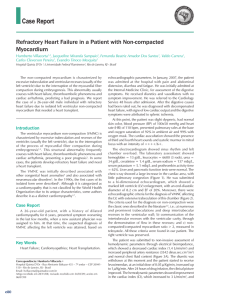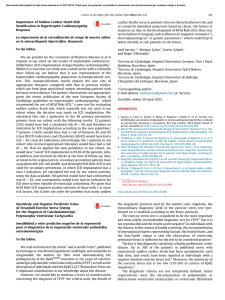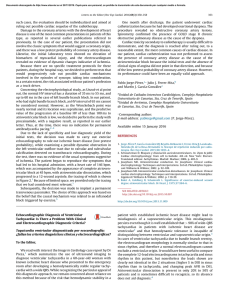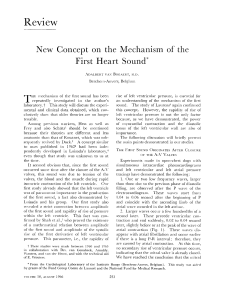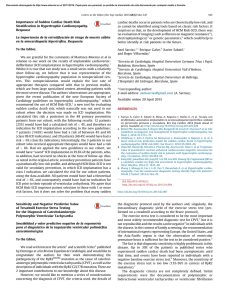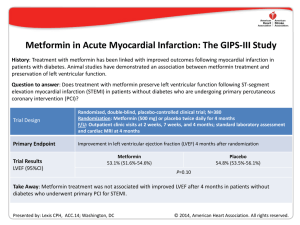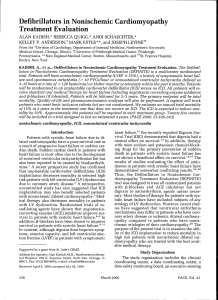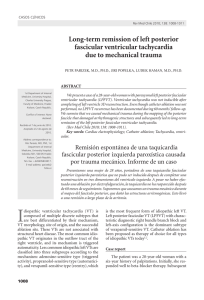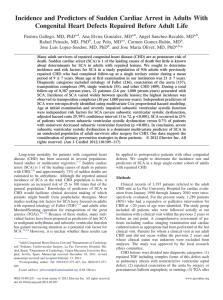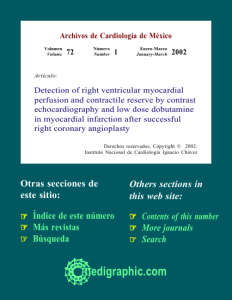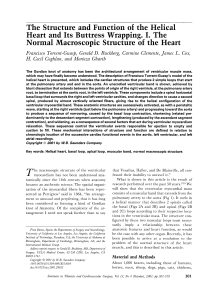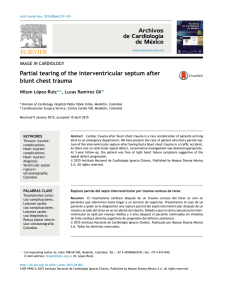Arrhythmogenic Right Ventricular Dysplasia
Anuncio
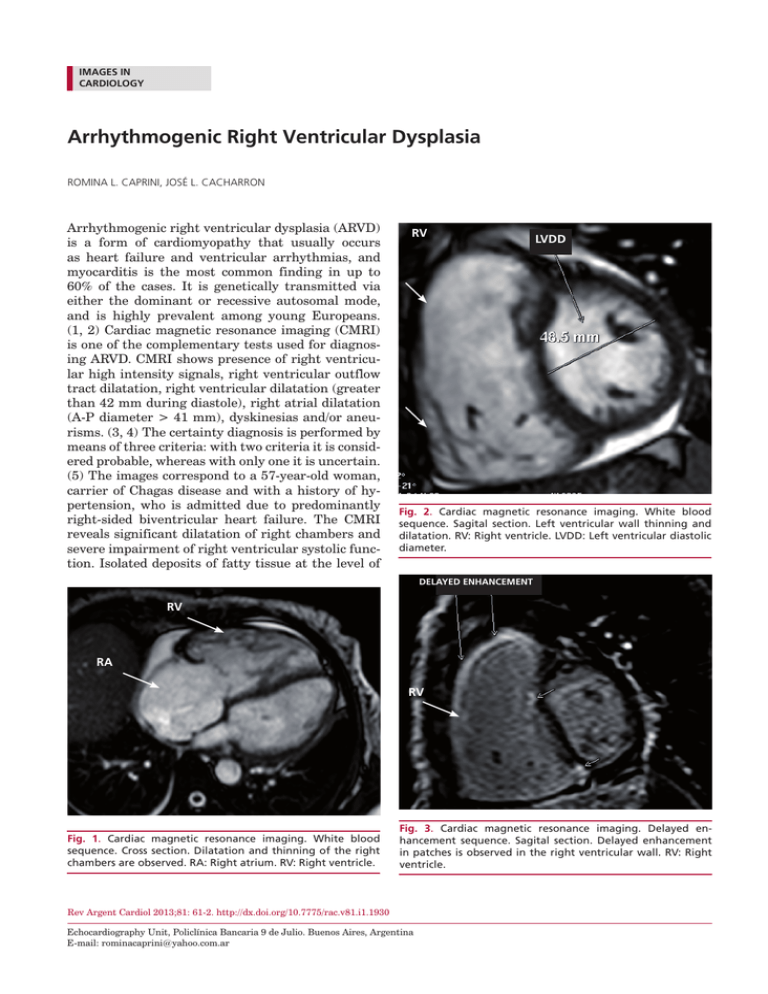
IMAGES IN CARDIOLOGY Arrhythmogenic Right Ventricular Dysplasia ROMINA L. CAPRINI, JOSÉ L. CACHARRON Arrhythmogenic right ventricular dysplasia (ARVD) is a form of cardiomyopathy that usually occurs as heart failure and ventricular arrhythmias, and myocarditis is the most common finding in up to 60% of the cases. It is genetically transmitted via either the dominant or recessive autosomal mode, and is highly prevalent among young Europeans. (1, 2) Cardiac magnetic resonance imaging (CMRI) is one of the complementary tests used for diagnosing ARVD. CMRI shows presence of right ventricular high intensity signals, right ventricular outflow tract dilatation, right ventricular dilatation (greater than 42 mm during diastole), right atrial dilatation (A-P diameter > 41 mm), dyskinesias and/or aneurisms. (3, 4) The certainty diagnosis is performed by means of three criteria: with two criteria it is considered probable, whereas with only one it is uncertain. (5) The images correspond to a 57-year-old woman, carrier of Chagas disease and with a history of hypertension, who is admitted due to predominantly right-sided biventricular heart failure. The CMRI reveals significant dilatation of right chambers and severe impairment of right ventricular systolic function. Isolated deposits of fatty tissue at the level of RV LVDD Fig. 2. Cardiac magnetic resonance imaging. White blood sequence. Sagital section. Left ventricular wall thinning and dilatation. RV: Right ventricle. LVDD: Left ventricular diastolic diameter. DELAYED ENHANCEMENT RV RA RV Fig. 1. Cardiac magnetic resonance imaging. White blood sequence. Cross section. Dilatation and thinning of the right chambers are observed. RA: Right atrium. RV: Right ventricle. Fig. 3. Cardiac magnetic resonance imaging. Delayed enhancement sequence. Sagital section. Delayed enhancement in patches is observed in the right ventricular wall. RV: Right ventricle. Rev Argent Cardiol 2013;81: 61-2. http://dx.doi.org/10.7775/rac.v81.i1.1930 Echocardiography Unit, Policlínica Bancaria 9 de Julio. Buenos Aires, Argentina E-mail: [email protected] 62 the right ventricular free wall (Figures 1 & 2) are observed in the black blood sequence, and fibrosisnecrosis in patches are evidenced on the right ventricular walls, in the delayed enhancement sequence (Figure 3). Conflicts of interest None declared REFERENCES 1. Elizari MV, Chiale PA. Arritmias Cardíacas. Editorial Médica Panamericana; 2003. Cap 35: La displasia y las miocardiopatías del ventrículo derecho. p. 699-730. ARGENTINE JOURNAL OF CARDIOLOGY / VOL 81 Nº 1 / FEBRUARY 2013 2. Herren T, Gerber P, Duru F. Arrhythmogenic right ventricular cardiomyopathy/ dysplasia: a not so rare “disease of the desmosome” with multiple clinical presentations. Clin Res Cardiol 2009;98:14158. http://doi.org/d29sv8 3. Tandri H, Castillo E, Ferrari V, Kurrman N, Dalal D, Bomma C, et al. Magnetic Resonance Imaging of arrhythmogenic right ventricular dysplasia: sensitivity, specificity, and observer variability of fat detection versus functional analysis of the right ventricle. J Am Coll Cardiol 2006;48:2277-84. http://doi.org/dbxh3w 4. Sánchez-Rubio J, Carreras F, Pujadas S, Leta R, Guillaument E, Grande C, et al. [Clinical value of cardiovascular magnetic resonance imaging in the diagnostic work-up of patients with suspected arrhythmogenic right ventricular dysplasia]. Rev Esp Cardiol 2005;58:1022-8. http://doi.org/ckrn46 5. Zamora AG. Abordaje diagnóstico de las miocardiopatías mediante resonancia magnética. Arch Cardiol Méx 2005;75:90-5.
